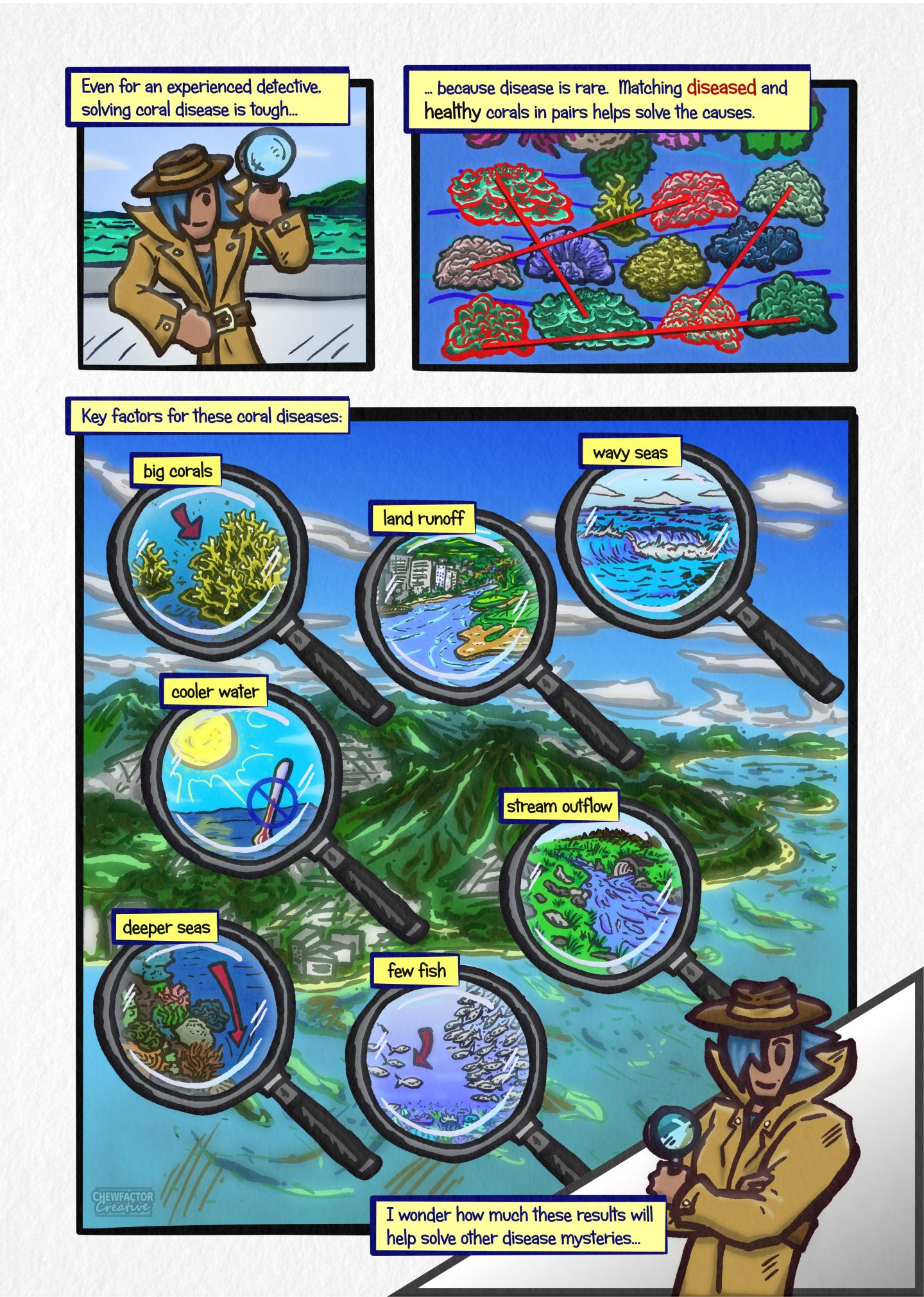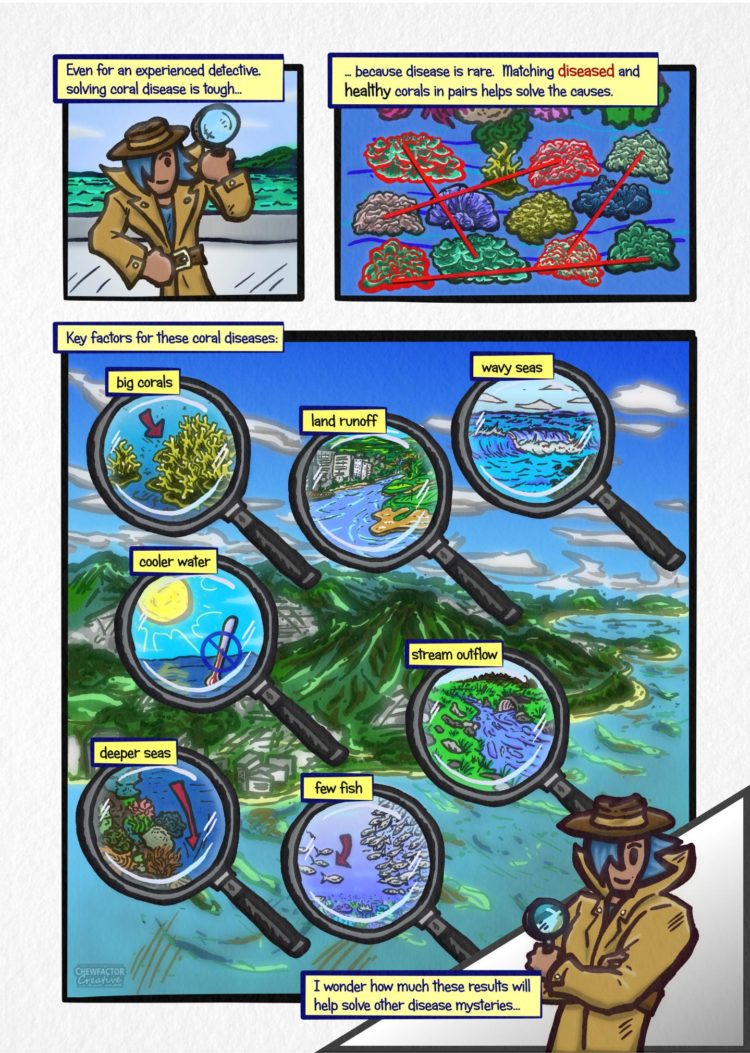
Credit: Dane Hallam
In a study published in Scientific Reports, a team of international researchers led by University of Hawai’i (UH) at Mānoa postdoctoral fellow Jamie Caldwell used a statistical technique typically employed in human epidemiology to determine the ecological risk factors affecting the prevalence of two coral diseases–growth anomalies, abnormalities like coral tumors, and white syndromes, infectious diseases similar to flesh eating bacteria.
Certain diseases in corals are either endemic, meaning they are consistently found at baseline levels in the environment, or epidemic, meaning there are periods with big outbreaks and then they seem to disappear. Though important to understand, it has been a challenge for researchers to study how those diseases are transmitted because of low rates of occurrence.
The team compared biological, environmental, human-related, and physical disease drivers with observations of healthy and diseased coral colonies.
“We specifically looked at associations between disease occurrence during non-outbreaks periods to understand what conditions allow diseases to persist in the environment at low levels year-round, or in between epidemics,” said Caldwell, who is based at the UH Mānoa School of Ocean and Earth Science and Technology’s (SOEST) Hawai’i Institute of Marine Biology (HIMB).
They found larger corals had higher disease risk overall. In particular, growth anomalies were more common in reefs with fewer fish, limited water motion and in areas adjacent to watersheds with high fertilizer and pesticide runoff. In contrast, white syndromes were associated with wave exposure, stream exposure, depth, and cooler ocean temperature.
Healthy coral reefs are culturally important ecosystems and vital to Hawai’i’s tourism industry. Disease outbreaks can wreak havoc on coral ecosystems. Because some diseases are rare and hard to observe, it had been difficult in the past to rigorously make inferences about which disease drivers were most impactful.
“The methods we used in this study highlight the power of the experimental design common in epidemiology but rarely, if ever, used in ecological studies,” said Megan Donahue, co-author and HIMB associate researcher.
“This study provides information about what specific conditions impact coral health and the results could be used to help improve coastal development plans by considering the downstream effects of different land-use types on the coral community,” said Caldwell. “Additionally, this improves our ability to predict future outbreaks based on environmental conditions and mitigate disease drivers like runoff from golf courses to evade outbreaks altogether.”
The team is now using the relationships they identified to forecast coral disease outbreak risk across the Indo-Pacific. This is part of a NASA-funded project to develop seasonal and near real-time forecasts of coral disease outbreak risk for all US-affiliated Pacific Islands and the Great Barrier Reef. The forecasts will be publicly available through NOAA Coral Reef Watch.
###
Media Contact
Marcie Grabowski
[email protected]
808-956-3151
Related Journal Article
http://dx.





